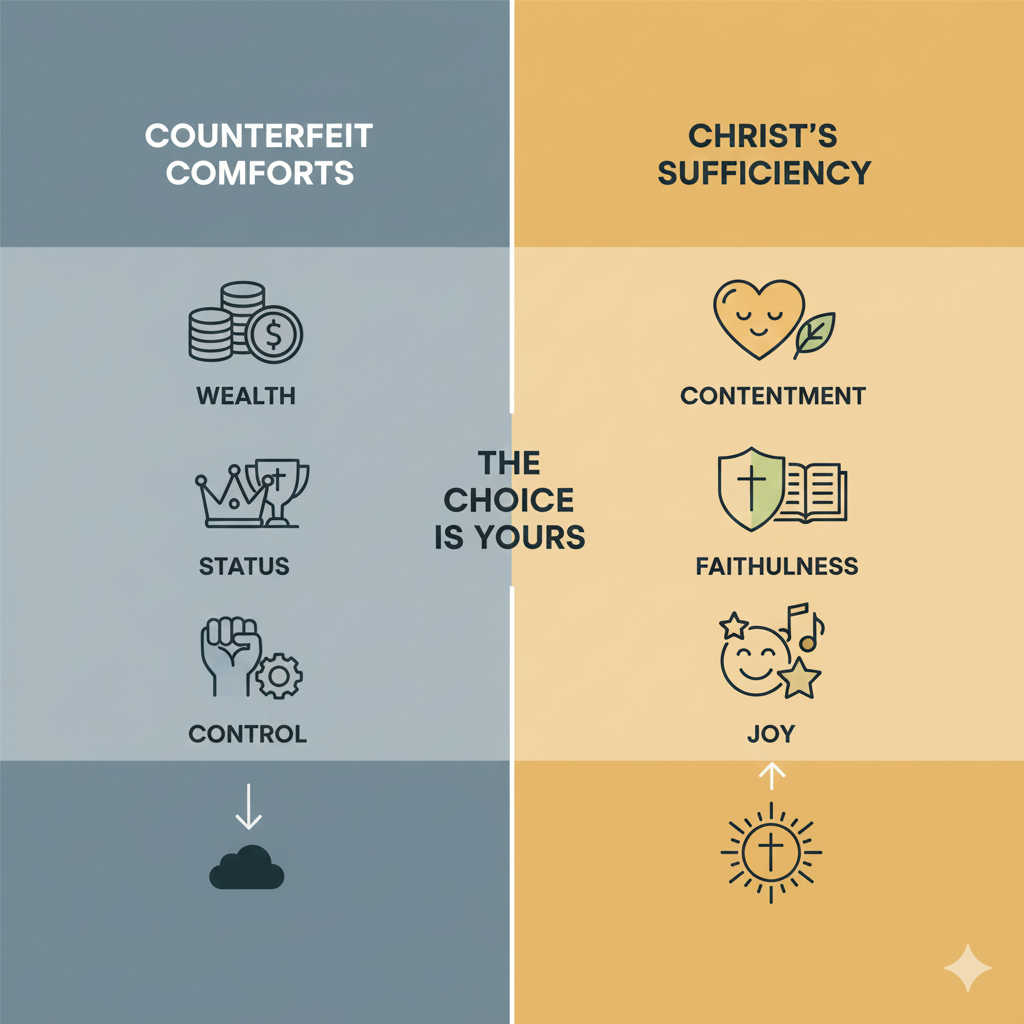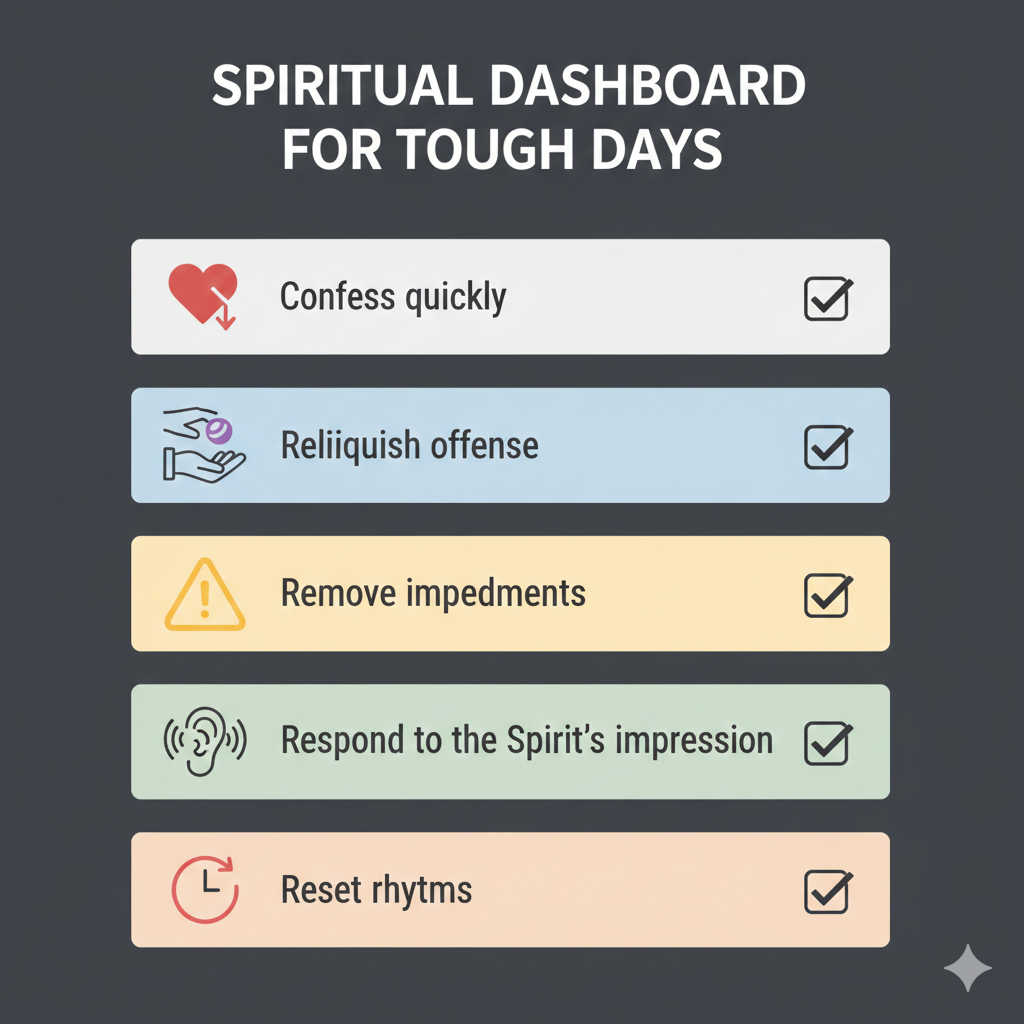How to Restart Quiet Time This Fall: Gentle Rhythms for a Noisy Season
Autumn has a way of inviting us to begin again. Leaves turn, routines shift, and our souls whisper that it’s time to come home to God’s presence. If your Bible has stayed shut, your prayers feel thin, or your mind has been spiraling, you’re not alone. The good news of Jesus is not for the always-put-together but for the weary and the distracted. This fall can be a gentle restart—not a guilt trip, but a grace-filled return.
Why Fall Is a Mercy
God built rhythms into creation—day and night, seasons and sabbaths—so we would remember that life with him happens in cadence, not in perpetual urgency. Scripture says, “The steadfast love of the Lord never ceases; his mercies never come to an end; they are new every morning” (Lamentations 3:22–23). New mercies mean new beginnings.
Whether you’re a longtime Christian or simply spiritually curious, consider this an invitation, not a demand. Jesus says, “Abide in me… apart from me you can do nothing” (John 15:4–5). Quiet time isn’t a productivity hack; it’s the place we learn to abide.
Start Smaller Than You Think
Most of us overreach and burn out. Instead, choose a tiny, durable practice that fits your real life.
- Two-minute prayer: Sit, place your feet on the floor, and pray, “Father, here I am.” Inhale: “You are my shepherd.” Exhale: “I lack nothing” (Psalm 23:1).
- Five-minute Scripture: Read a short passage aloud—try Psalm 131, Mark 1:35, or Philippians 4:6–9. Circle a word or phrase and carry it into your day.
- One question for God: “Lord, what do you want me to notice today?” Wait in quiet for 60 seconds. Jot a single sentence.
Consistency beats intensity. When you miss a day (you will), simply begin again. Divine love doesn’t rise and fall with your streak.
When Your Thoughts Spiral: Three Gospel Practices
Our minds can feel like runaway trains. The Bible names this inner struggle honestly: sin’s power twists desires (Romans 7), and spiritual opposition is real (Ephesians 6). Yet in Christ, we are not helpless. Try these three practices drawn from Philippians 4:6–9 and Romans 12:2:
- Pause and Present: “Do not be anxious about anything, but in everything by prayer and supplication with thanksgiving let your requests be made known to God…” (Philippians 4:6). When you notice a spiral, pause. Name what you’re anxious about. Present it to God as-is.
- Reframe with Truth: Ask, “What is true, noble, right, pure…?” (Philippians 4:8). Find one verse to answer your fear. For example, fear of failure: “The Lord is my shepherd; I shall not want” (Psalm 23:1) or “My grace is sufficient for you” (2 Corinthians 12:9).
- Replace with Practice: “What you have learned and received and heard and seen in me—practice these things” (Philippians 4:9). Do one embodied act: slow breath prayer, a short walk, singing a verse of a hymn. Let the body help the soul settle.
This is not denial. It’s training your mind to be led by Jesus rather than by fear. If anxiety or depression feels crushing, please seek professional help. Pastors and counselors can walk with you. God often heals through ordinary means and wise care.
A Simple, Gentle Weekly Plan
Use this as a template, not a rule. Adjust to your season and energy.
- Sunday: Worship with others if you’re able. If church is hard right now, start with online or a small gathering, and ask God for safe people and renewed trust (Hebrews 10:24–25; Psalm 34:18).
- Monday: Read a Psalm aloud. Ask, “What does this reveal about God?” Write one sentence of gratitude.
- Tuesday: Read a Gospel paragraph (e.g., Mark 1:35–39). Notice how Jesus moves unhurriedly. Pray, “Jesus, teach me your pace.”
- Wednesday: Practice lament. Name a grief or frustration to God. Use the pattern: Honest sorrow → humble request → hopeful trust (see Psalm 13).
- Thursday: Reach out to one person with encouragement. Text a verse or offer to pray. Faith grows in community.
- Friday: Take a 15-minute “creation walk.” Leave your phone. Notice beauty. Whisper thanks.
- Saturday: Light a candle or make a simple meal. Invite someone to the table if you can. Practice embodied hospitality as worship (Romans 12:1, 13).
Tools That Help Without Taking Over
- Choose paper first. A physical Bible slows you down and resists distraction. Apps are great—use them as servants, not masters.
- Timer, not tracker. Set a 5- or 10-minute timer. End with thanks. Let go of “streaks.”
- Sing something old. A verse of a hymn can anchor the heart in storms: “Great is Thy faithfulness… morning by morning new mercies I see.” Ancient words steady modern souls.
If You’ve Been Hurt by Church
Church hurt is real. God does not minimize your pain. Jesus, our High Priest, “sympathizes with our weaknesses” (Hebrews 4:15), and the Lord is “near to the brokenhearted” (Psalm 34:18). Quiet time won’t erase wounds, but it can become a safe room where God tends to you.
- Tell God the truth. Pray the raw Psalm words you actually feel.
- Separate God from mere people. Human failure is not the same as Christ’s heart.
- Seek slow, wise re-entry. Consider a small group or a trauma-aware pastor/counselor. Healthy community is part of healing.
Whole-Person Stewardship: Body and Soul Together
In an age of quick fixes and health hype, remember: your body is not a project to perfect but a gift to steward (1 Corinthians 6:19–20). Quiet time can be wonderfully embodied:
- Warmth and scent: Tea, a blanket, or a candle can signal safety to your nervous system.
- Movement: A short walk or gentle stretch before reading can quiet racing thoughts.
- Hospitality to yourself and others: A pot of soup, a shared table, and lingering conversation are spiritual practices, not distractions.
Let your practices reject cultural pressure to optimize everything. The goal is communion, not performance.
For the Spiritually Curious
If you’re exploring faith, start with Jesus. Read Mark’s Gospel for fifteen minutes a day. Ask: Who is he? What does he do? What does he ask of me? Christians believe Jesus entered our suffering, defeated sin’s enslaving power through the cross, and rose to give us new life. Quiet time is simply being with the One who loves us and makes us whole.
Try this prayer: “God, if you are there and if you are like Jesus, would you show yourself to me? Give me light for my next step.”
When You Miss a Day
Shame says, “You failed; why try?” Grace says, “Begin again.” Remember, “We do not know what to pray for as we ought, but the Spirit himself intercedes for us” (Romans 8:26). Even your weak prayers ride on the strength of Christ.
A Closing Prayer
Father, thank you for new mercies and gentle beginnings. Slow our hurried minds. Quiet our spiraling thoughts. Teach us to abide in Jesus. Form in us the simple, sturdy habits that keep us near your heart. Make our homes and churches places of comfort and courage. And for those who are hurting, be especially near. In the name of the Father, and the Son, and the Holy Spirit—Amen.
Next small step: Set a two-minute timer. Breathe. Pray Psalm 131 aloud. Close with one sentence of gratitude. Then carry that peace into whatever comes next.
Discover more from Elkleaf Publishing
Subscribe to get the latest posts sent to your email.




